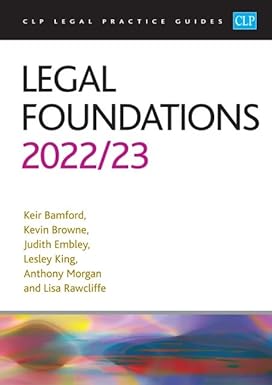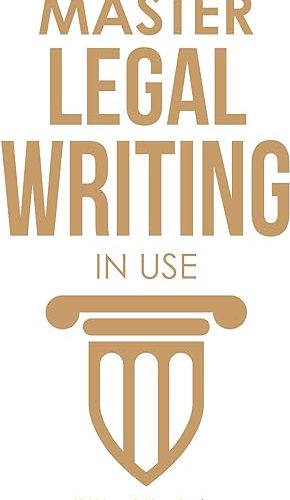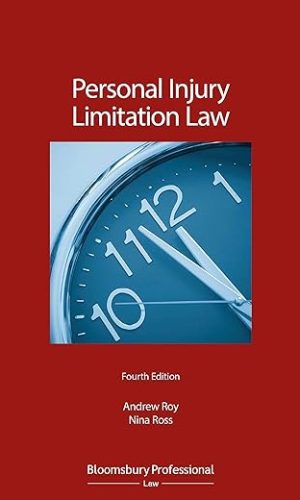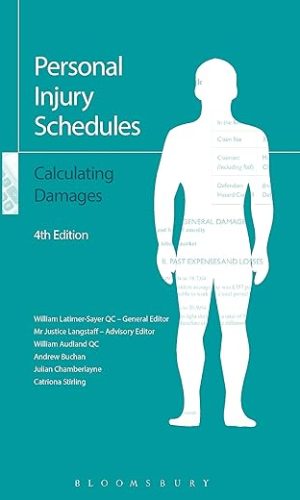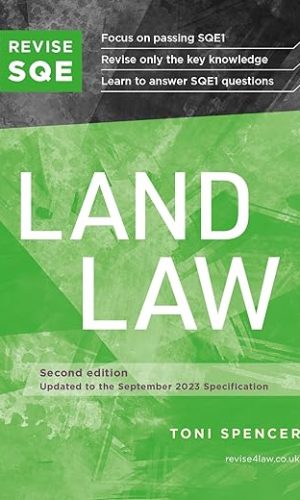Law
-
Ad Law: The Essential Guide to Advertising Law and Regulation
Ensuring marketers and advertisers are aware of the laws and regulations of advertising is now more important than ever. If a campaign is found to be potentially offensive, harmful, or misleading, it can ‘go viral’ in just the click of a mouse, and the implications of breaching those laws are likely to be both damaging and costly to a brand’s reputation, its creative work, and the strategic planning behind it.
Now offering level-headed advice on everyday questions encountered when designing and running promotional campaigns, Ad Law, the new book from the Institute of Practitioners in Advertising (IPA), is the ultimate handbook to the law and regulation of advertising and marketing communications. Containing guidance based on real-world experiences from media and advertising lawyers and the IPA legal team, this book expertly leads readers through the most applicable laws and regulations, common pitfalls and the practicalities behind them, such as the new industry-standard client/agency agreement.
Covering issues such as intellectual property, privacy and defamation, plus the self-regulatory framework, Ad Law is the ideal companion for any advertising and marketing professional, or lawyer working within these sectors.
Read more
£40.20 -
Law Express: Contract Law
Study with the help of the best-selling law revision series designed for students.
Law Express: Contract Law, 7th Edition by Finch and Fafinski is the ultimate revision guide in the field, and an excellent companion for students who need to understand key cases, statutes, and legal terms surrounding the subject.
As part of the UK’s best-selling law revision series, this book is designed for students and will help you review and get a deeper understanding of the essential cases and legal terminology of the topic, by assessing and approaching the issues using expert advice. As part of your study, you will also learn how to lead further discussions and form your own view and understanding of how the law works.
The useful revision checklist at the beginning of the book will help you organise your study for the course, and the topic map sets the learning expectations that will guide you through the learning and revision process.
The comprehensive Index guide and Glossary at the end of the text condense all the necessary terminology, ensuring you have everything you need to succeed in the course.
Read more
£7.60 -
Legal Foundations
Legal Foundations provides a practical introduction to five subjects that are an intrinsic part of legal practice and which must be clearly understood by all practitioners: Revenue Law, Professional Conduct, EC Law, Human Rights and Probate and Administration. Worked examples illustrate how these topics are applied in practice.Read more
£29.80Legal Foundations
£29.80 -
Legal Method Essentials for Scots Law (Edinburgh Law Essentials)
Guides you through the study, research and writing skills you need to ace your study of law
Get started with using the library; find out what statutory interpretation and judicious precedent are; learn about finding and using case law and legislation; discover how to access and cite books, journals and other sources; take your study international with a guide to sources from Europe and further afield; and sail through your coursework and exams with handy tips for legal writing and research.
Read more
£15.20 -
Maritime Safety in Europe: A Comparative Approach (Maritime and Transport Law Library)
The book is concerned with the harmonisation of maritime safety legal systems in Europe. It describes maritime safety legal systems in selected European countries as well as maritime safety issues from the perspective of the International Maritime Organisation, European Union, and European Free Trade Association. Distinguished scholars from Europe’s leading maritime law academic centres present national perspectives of maritime safety systems, questioning whether the adopted national solutions guarantee the compatibility with IMO and EU legal regime, as well as assessing the global and EU system. Moreover, the book seeks to provide some answers as to whether the IMO goals on maritime safety are adequate in light of current safety challenges and how to achieve higher level of enforcement of internationally-recognised maritime safety standards. It will be of great assistance to those readers who need to familiarize themselves with current problems inherent in maritime safety, whether that be lawyers, scholars, professional mariners, or national institutions.
Chapter 14 of this book is freely available as a downloadable Open Access PDF at http://www.taylorfrancis.com under a Creative Commons Attribution-Non Commercial-No Derivatives (CC-BY-NC-ND) 4.0 license.
Read more
£25.60 -
Master Legal Writing in Use + Workbook + 100 Expert Email, Letter & Legal Memo Templates. Clear & Effective Legal Writing for Beginners & Law School Students: … Legal Writing,…
Limited Edition
Master Legal Writing in Use + Workbook + 100 Expert Email, Letter & Legal Memo Templates. Clear & Effective Legal Writing for Beginners & Law School Students: Contracts, Memos, Emails & Letters.Get your copyNOW.
“Get it right and keep it tight.”
Book Summary:
“Master Legal Writing in Use + Workbook + 100 Expert Email, Letter & Legal Memo Templates. Clear & Effective Legal Writing for Beginners & Law School Students: Contracts, Memos, Emails & Letters” is a must-read for law students and beginner lawyers who want to improve their writing skills. This book provides a clear and effective approach to legal writing, with a focus on crafting compelling legal memos, emails, letters, contracts, and forms. It covers everything from writing in plain English, to more advanced areas of Legal English Writing, and key skills required to succeed in the legal field.This Legal Writing Toolkit includes:
- Introduction to legal English
- Clear and effective approach to legal writing
- Comprehensive guide for law students and beginner lawyers
- Covers legal memos, emails, letters, contracts and legal forms
- Focuses on writing in plain Legal English
- Includes key skills for success in the legal field
- Unique writing strategies for lawyers
- Legal forms book for quick reference
- Practical examples and exercises for hands-on learning.
Master the essentials of legal writing with this practical guide.
Perfect for both native and non-native English-speaking lawyers, this book offers hands-on lessons in the language of legal writing.With a focus on clarity and concision, you’ll learn the essentials of writing simple letters, powerful memoranda, compelling emails, and contracts. This book covers everything from emailing to advanced skills like managing your inbox, building rapport with clients, and writing simple, yet effective memos.
Clear communication is the cornerstone of a successful legal career. It is what sets you apart as a professional, and it is what allows you to build trust and credibility with your clients and colleagues.
Effective writing in the legal profession requires attention to detail, professionalism, and the ability to convey complex information in a concise and easily understandable manner.
Legal Writing in Use:
A Practical Guide for Lawyers, Paralegals, and Legal Professionals + 100 Expert Email & Letter TemplatesThis comprehensive guide is perfect for new lawyers, solicitors, paralegals, and legal secretaries looking to take their professional communication to the next level.
With 100 downloadable expert email and letter templates, you’ll have all the tools you need to write clear, concise, and effective writing. And with a focus on language clarity, this book is also great for non-native English speakers looking to improve their legal writing skills. Don’t let poor email communication hold you back in your legal career – add “Master Legal Writing in Use” to your collection today.
Read more
£3.20 -
Personal Injury Limitation Law (Criminal Practice Series)
How can you avoid the common pitfalls when navigating the complexities of personal injury limitation periods?This is a guide to the law of limitation periods in personal injury actions. Pitfalls and problems are highlighted and the limitation periods and service rules are clearly explained, ensuring that you never issue or serve proceedings outside the legal time limits. Each chapter is supplemented by summaries of the key cases for that topic and Part 2 contains all the relevant legislation.
New coverage includes landmark cases, explaining and analysing their impact on practice:
– Collins v Secretary of State for Business, Innovation and Skills (Court of Appeal, 2014) – an asbestos-related lung cancer case of ‘seminal importance in relation to long tail industrial disease claims’
– Platt v BRB (Residuary) Ltd (Court of Appeal, 2014) – examination of constructive knowledge in the context of limitation in disease cases
– RE v GE (2015) – consideration of the court’s discretion, conferred by section 33 of the Limitation Act 1980 in the context of a sexual abuse case
– Abela v Baadarani (Supreme Court, 2013) – highlights an important shift of emphasis away from the traditional approach to service out of the jurisdiction and considerations of national sovereignty, and towards a more practical and pragmatic approach
– Barton v Wright Hassall (Supreme Court, 2018) – a crucial judgment regarding whether litigants in person should be granted a special status in civil litigationThis title is included in Bloomsbury Professional’s Personal Injury Law online service.
Read more
£99.60 -
Personal Injury Schedules: Calculating Damages: Calculating Damages (Fourth Edition)
Personal Injury Schedules: Calculating Damages covers in one single volume all that the PI practitioner needs in order to calculate damages in a personal injury case. It provides a guide to the assessment of damages and presentation of schedules. The emphasis remains on the practical application of the rules and principles involved, covering a variety of claims ranging from the small to the catastrophic. Defendants are also catered for, with a substantial chapter on Counter-Schedules.The book contains comprehensive and up-to-date analysis of the relevant principles and case law in a practical handbook style with valuable advice on presentation and strategy, complimented by a raft of precedents. Its key strengths are its clear and structured presentation and calculation of difficult items of loss with checklists, bullet points and tables offering immediate solutions for the busy practitioner, who needs accurate information on a daily basis in the courtroom or the office.
This new edition is fully updated to take account of the following developments resulting from case law since the last edition:
Fatal Accident Act multipliers: Knauer v MOJ [2016] UKSC 9;
Pre-existing conditions: Reaney v University Hospital of North Staffordshire [2015] EWCA Civ 1119;
Residual earnings discount factors: Billett v MOD[2015] EWCA Civ 773;
Review of the highest court award ever made: Robshaw v United Lincolnshire Hospitals NSH Trust [2015] EWHC 923 (QB);
Developments in the approach to interim payment applications: Smith v Bailey [2014] EWHC 2569 (QB);
Recoverability of credit hire claims: Brent v Highways & Utilities Construction & others [2011] EWCA Civ 1384; Opuku v Tintas [2013] EWCA Civ 1299; Zurich Insurance v Umerji [2014] EWCA Civ 357; Sobrany v UAB Transtira [2016] EWCA Civ 28;
Fatal accidents and incompatibility with the ECHR: Swift v Secretary of State for Justice [2013] EWCA Civ 193;
Periodical payment orders: RH v University Hospitals Bristol Foundation Trust [2013] EWHC 299 (QB); Wallace v Follett [2013] EWCA Civ 146;
Striking out dishonest claims: Fairclough Homes Ltd v Summers [2012] UKSC 26;
Assessment of multipliers when not constrained by the Damages Act 1996: Simon v Helmot [2012] UKPC 5;
Assessment of life expectancy: Whiten v St George’s Healthcare NHS Trust [2011] EWHC 2066 (QB).This title is included in Bloomsbury Professional’s Personal Injury Law online service.
Read more
£121.80 -
Practical English Language Skills for Lawyers: Improving Your Legal English
A high level of English remains essential for any lawyer wishing to work internationally, but transferring language skills from the classroom to the workplace can be challenging. This book shows non-native, English speaking lawyers how to apply their English language skills to everyday legal situations and contexts, providing essential guidance to ensure they can work confidently in different settings and mediums.
Including activities based on real-life scenarios, the book will allow lawyers and law students to practise their English in key areas of working life, from networking and client meetings, to telephone and conference calls, contract drafting and contract negotiations, presentations and using social media. Written by two highly experienced legal English language tutors, both former legal professionals, it also features online support material that includes listening exercises to complement those based on writing and reading comprehension.
Designed to hone skills required in working life, Practical English Language Skills for Lawyers is practical, accessible and fun. Including guidance on job applications and interview practice, this book is an invaluable resource not only for current legal professionals but also for those students considering their first career step.
Read more
£18.60 -
Principles of International Energy Transition Law
Energy transition is a complex global problem, with governance and policies cutting across multiple legal silos including human rights, environment, international economics, finance, energy, law of the sea, and transnational commerce. As of yet, there is no comprehensive treatment of the legal principles governing energy transition as a whole. Furthermore, energy transition must solve a trilemma that pits energy equity (the need to provide access to energy needed to
fuel human development) and energy security (the need to provide resilient and reliable energy systems) against environmental sustainability. Without a comprehensive understanding of these issues, law and policy-makers risk exacerbating rather than resolving the underlying problems.Principles of International Energy Transition Law introduces the energy transition problem by situating the climate emergency in its broader energy and development context, showing how global energy value chains are deeply enmeshed in and drive global economic and human development. It combines the different legal perspectives in one consistent analysis by outlining their interactions and showing how they can be reconciled. The book discusses thirty-two international legal principles
governing different aspects of the energy transition trilemma’s three parts. It then uses a commons governance perspective to propose a holistic approach to applying and balancing these different parts and their different legal principles.Highlighted sections summarise the most important concepts and ideas for easy reference, making the title particularly accessible for students and policy-makers as well as law practitioners.
Read more
£87.10 -
Profit From Your Idea: How to Make Smart Licensing Deals
All you need to protect and profit from your invention
You’ve got a great idea and you’re ready to strike it rich.
Now, you need to find a company or partner you can trust, hash out a fair
licensing deal, and get your idea to the marketplace.Profit From Your Idea will
help you negotiate and draft a licensing agreement that protects your interests
and maximizes your chances of earning a profit. With this all-in-one guide
you’ll understand how to:• navigate the
licensing landscape• protect your
intellectual property rights• sort out
ownership rights• work with
licensing agents• protect
confidential information• find and pitch
to potential licensees• license
overseas• disclose your
invention safely, and• negotiate a
winning license agreement.The 11th edition covers the latest developments in licensing
law and patent filing rules, and discusses new tools to help you research the
market for your invention and identify potential licensees.Read more
£22.00 -
Revise SQE Land Law: SQE1 Revision Guide 2nd ed
Up to date for the 2023 SQE1 specification, this book will help candidates preparing for the SQE1 exam to revise the legal concepts that underpin land law and will give them a strong base in the Functioning Legal Knowledge required for the SQE1 assessment. It demonstrates the working of the core principles of honesty and integrity in accordance with the SoSC, the SRA Principles and the Code of Conduct. It covers all the core areas of the SQE1 curriculum, and readers will find a combination of case law extracts plus practical scenarios to demonstrate how the law operates in practice. Readers will be able to test their subject knowledge and their ability to identify and apply relevant statutes, case law, legal principles and rules to problem scenarios, through multiple-choice questions in the style of the SQE assessment.
.
Read more
£13.50 -
Sovereignty, International Law, and the Princely States of Colonial South Asia (The History and Theory of International Law)
What constitutes a sovereign state in the international legal sphere? This question has been central to international law for centuries. Sovereignty, International Law, and the Princely States of Colonial South Asia provides a compelling exploration of the history of sovereignty through an analysis of the jurisdictional politics involving a specific set of historical legal entities.Governed by local rulers, the princely states of colonial South Asia were subject to British paramountcy whilst remaining legally distinct from directly ruled British India. Their legal status and the extent of their rights remained the subject of feverish debates through the entirety of British colonial rule. This book traces the ways in which the language of sovereignty shaped the discourse surrounding the legal status of the princely states to illustrate how the doctrine of sovereignty came
to structure political imagination in colonial South Asia and the framework of the modern Indian state.Opening with a survey of the place of the princely states in the colonial structures of South Asia, Sovereignty, International Law, and the Princely States of Colonial South Asia goes on to illustrate how international lawyers, British politicians, colonial officials, rulers and bureaucrats of princely states, and anti-colonial nationalists in British India used definitions of sovereignty to construct political orders in line with their interests and aspirations. By invoking the
vernacular of sovereignty in contrasting ways to support their differing visions of imperial and world order, these actors also attempted to reconfigure the boundaries among the spheres of the national, the imperial, and the international. Throughout the eighteenth, nineteenth, and early twentieth centuries,
debates and disputes over the princely states continually defined and redefined the concept of sovereignty and international legitimacy in South Asia.Using rich material from the colonial archives,Sovereignty, International Law, and the Princely States of Colonial South Asia conveys an understanding of the history of sovereignty and the construction of the modern Indian nation-state that is still relevant today. A riveting read, this book will be of considerable interest and importance to scholars of international law and South Asia, legal historians, and political scientists.
Read more
£55.80 -
The International Legal Order’s Colour Line: Racism, Racial Discrimination, and the Making of International Law
Prior to the twentieth century, international law was predominantly written by and for the ‘civilised nations’ of the white Global North. It justified doctrines of racial inequality and effectively drew a colour line that excluded citizens of the Global South and persons of African descent from participating in international law-making while subjecting them to colonialism and the slave trade.The International Legal Order’s Colour Line narrates this divide and charts the development of regulation on racism and racial discrimination at the international level, principally within the United Nations. Most notably, it outlines how these themes gained traction once the Global South gained more participation in international law-making after the First World War. It challenges the narrative that human rights are a creation of the Global North by focussing on the decisive contributions that countries of the Global South and people of colour made to anchor anti-racism in international law.
After assessing early historical developments, chapters are devoted to The League of Nations, the adoption and implementation of the International Convention on the Elimination of All Forms of Racial Discrimination, the debates within UNESCO on the notion of race itself, expansion of crimes against humanity to cover peacetime violations, as well as challenges to apartheid in South Africa. At all stages, the focus lies on the role played by those who have been the victims of racial discrimination, primarily the countries of the Global South, in advancing the debate and promoting the development of new legal rules and institutions for their implementation. The International Legal Order’s Colour Line provides a comprehensive history and compelling new approach to the history of human rights law.
Read more
£72.00



